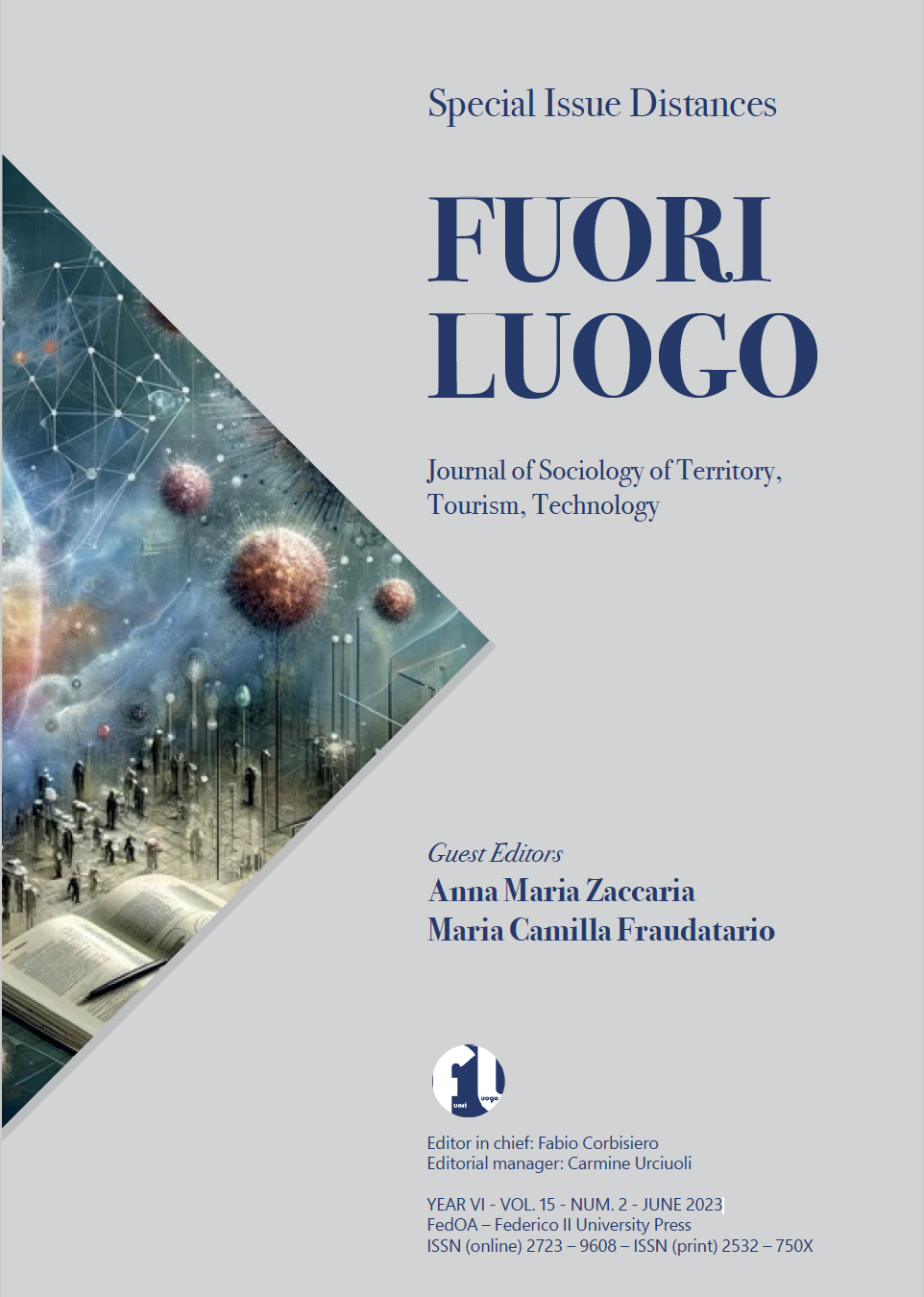Urban distance, civic virtues, and bottom-up solidarity in Milan: the case of Brigate Volontarie per l'Emergenza
Abstract
The article has an explorative nature and aims to investigate how practices of mutual aid and grass-roots solidarity, which emerged during the Covid-19 pandemic, contribute to the reduction of urban and social distancing. The research focuses on Brigate Volontarie per l’Emergenza (BVEs), an association of mutual aid and popular solidarity set up as a Volunteer Organization, born in Milan during the Covid-19 emergency to support people in need. They have been chosen among the various experiences for their ability to be an actor of connection and empower citizens. Data are qualitative, collected through semi-structured interviews, participant observation, and desk analysis of literature and the BVEs-produced data.
Data show how the BVEs’ practices contribute to the reduction of urban distancing in material and immaterial terms and allow us to identify three main dimensions through which this reduction can happen.
In particular, from the analysis emerge that practices of mutual support and bottom-up solidarity contribute to a re-politicization of solidarity and a re-politicization of the citizenry through solidarity. The practices of participation activated by the BVEs embodies specific the BVEs instances and values that stand in opposition to neoliberal policies, practicing grass-root counterpower and countering the individualization of society and social problems (poverty). Secondly, the cultivation of proximity relationships by the BVEs helps the creation of communitarian bonds, while strengthening the social and relational capital at the local level. Moreover, the reduction of urban distancing occurs in terms of renovated access to services, or alternative forms of services, to those who are most affected by the crisis. Lastly, the BVEs affect urban spaces and service spatial accessibility, promoting the transformation and multiplication of spaces. As the activity of the brigades spread, a multiplication of collection, sorting and distribution spots occur. At the same time, these spaces become places for service access: children's entertainment, support for school enrollment or social housing application, and clothing distribution.
The BVEs action is changing how the business-oriented city of Milan is going to deal with new emergencies and old social problems by establishing and strengthening social bonds, unity, and solidarity in the urban space. Today the BVEs model is widely recognized at the national level and replicated; they are also engaged in hosting Ukrainian refugees and supporting people directly in Ukraine through specific missions.
Downloads
Copyright (c) 2024 Monica Bernardi, Chiara Caterina Razzano

This work is licensed under a Creative Commons Attribution 4.0 International License.




